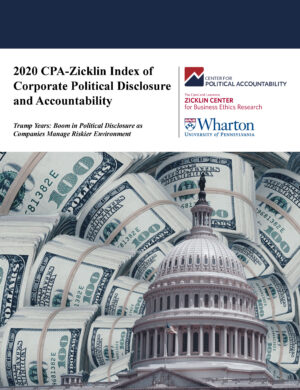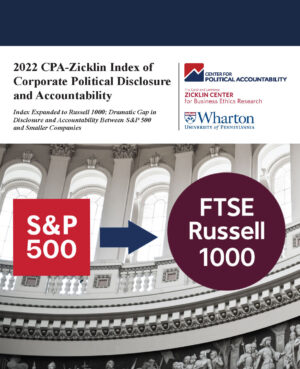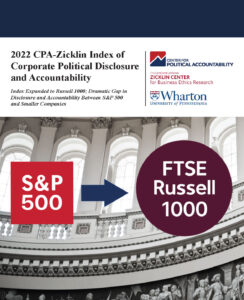Whether it’s what the founding framers envisioned or not, public corporations are a dominant source of political funding today. The 2024 CPA-Zicklin Index of Corporate Political Disclosure and Accountability is the only measure of electoral spending transparency and accountability among the country’s largest public corporations.
Issued annually, it’s produced by the Center for Political Accountability in conjunction with the Zicklin Center for Governance & Business Ethics at The Wharton School at the University of Pennsylvania.
Based on information posted by companies on their websites, the Index measures performance in three areas: disclosure, company political spending decision-making policies, and board oversight and accountability policies.
View the 2024 CPA-Zicklin Index here. The raw data used to compile this report is available here.




